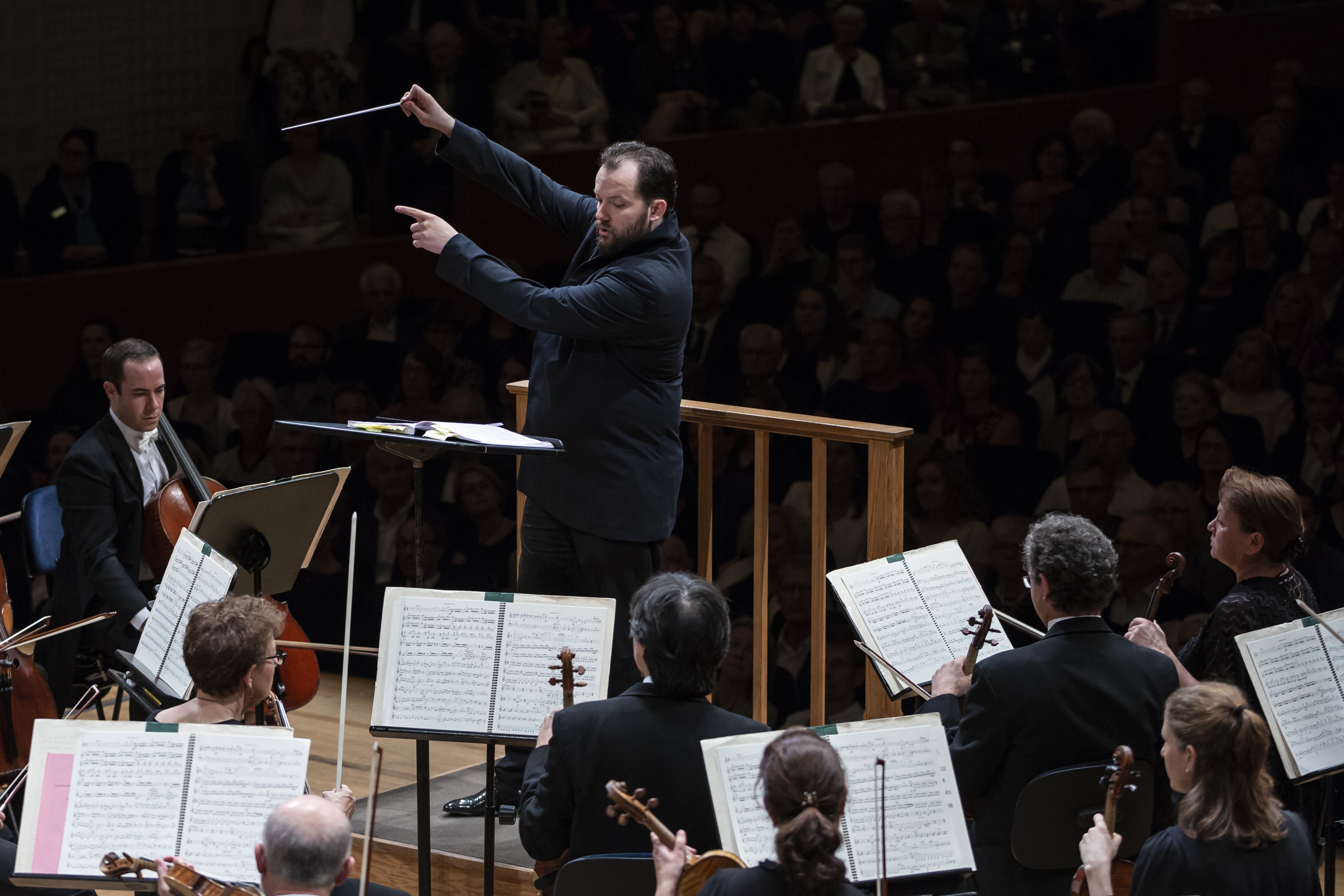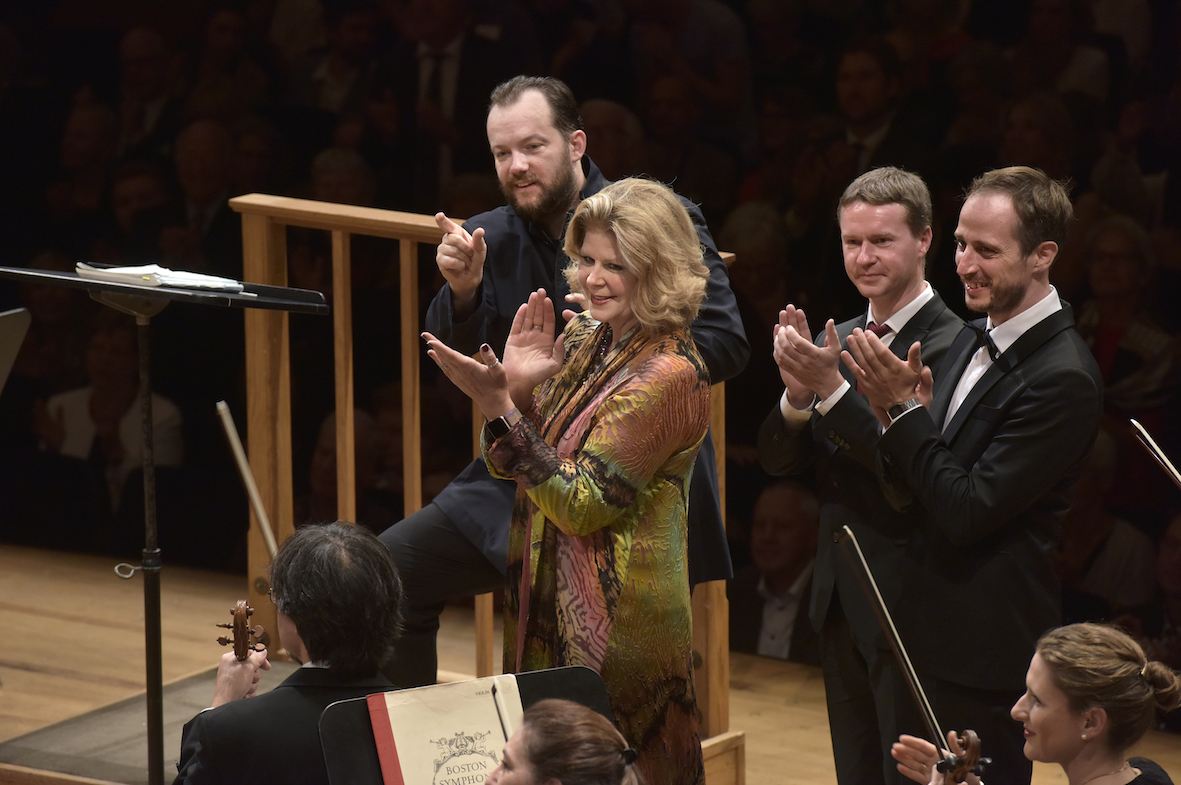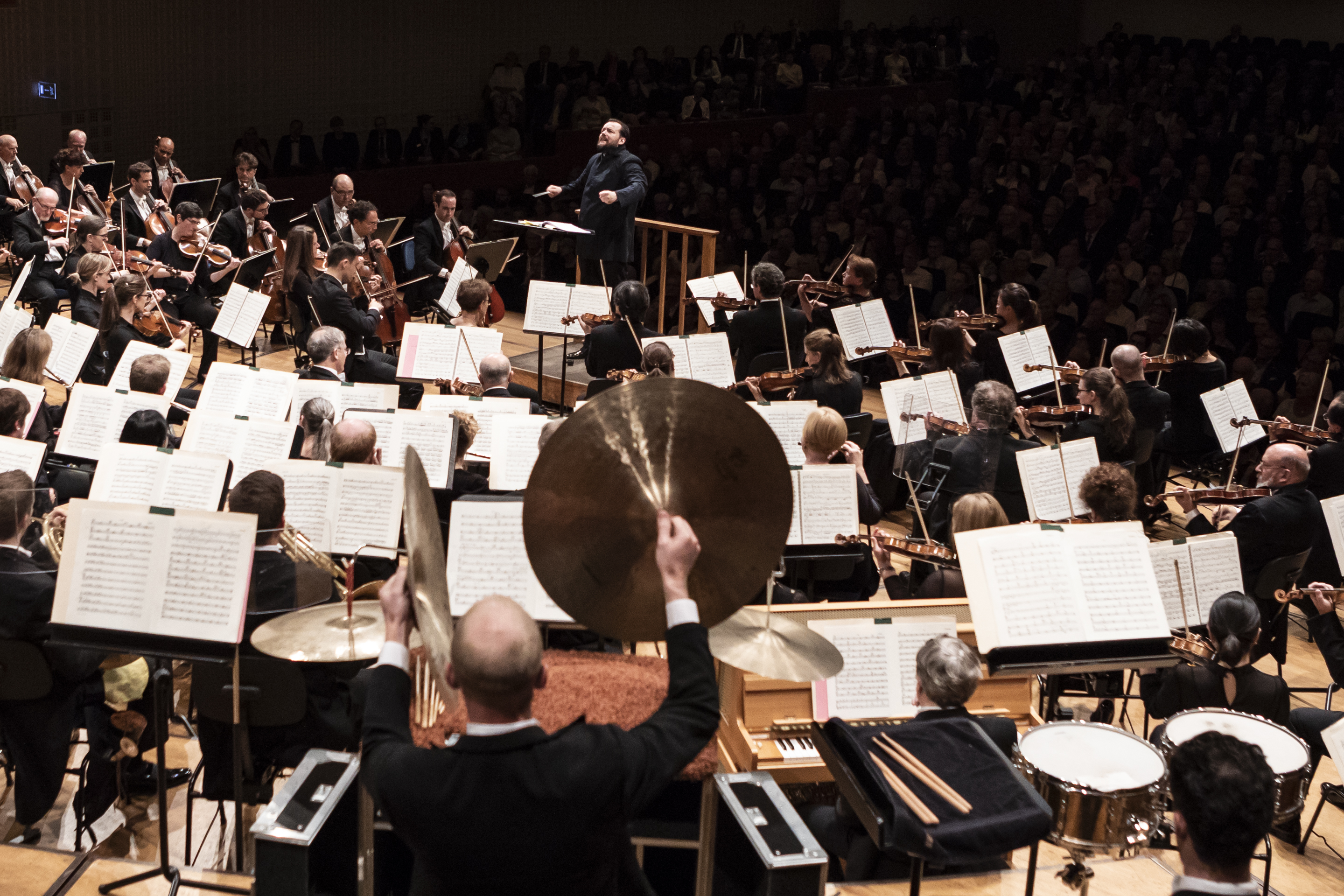25th August 2018 saw the 100th birth anniversary of American composer, conductor and pianist Leonard Bernstein. The Boston Symphony Orchestra chose for their two successive Lucerne Festival concerts Serenade, after Plato’s Symposium and Mahler’s Third Symphony a composer much associated with him.
The Serenade is scored for violin, strings, harp and percussion (timpani and five more percussionists playing side drum, tenor drum, base drum, triangle, suspended cymbal, xylophone, glockenspiel, chimes, Chinese blocks and tambourine). The violin is the most prominent solo instrument. Thus it is more or less like a violin concerto.
Plato’s symposium, a dialogue-related statement in praise of love was Bernstein source of inspiration for this five movement work. There are seven great Greek speakers who inspired these movements including Phaedrus, Aristophanes and Socrates. This work was commissioned for Isaac Stern and dedicated to Koussevitsky. It was written just after the film score for “On the Waterfront” and composed in the year 1954. It inhabits the musical world of the Voltaire inspired Candide from whence certain thematic echoes can be detected.

Latvian violinist Baiba Skride, winner of the Queen Elizabeth competition, Brussels in 2001 has made a name for herself with all the world’s great orchestras and in chamber music. The Serenade required extremes of dynamics and lyrical passages alternating with more virtuosic ones. Conductor of the Boston Symphony Orchestra, music director Andris Nelsons held a firm grip over the colourful orchestral palette. Called back for an encore Skride was a winner with the audience.
Andris Nelsons chose to couple the Bernstein with Shostakovich’s Symphony no. 4. It was the same composer’s fifth symphony that had become a staple of his conducting repertoire. Symphony no. 4 in C minor op. 43 was composed in 1935/36. During this period Pravda under direct orders from Joseph Stalin published an editorial “Muddle Instead of Music” that denounced the composer. Shostakovich withdrew its first performance and it only received its premiere 25 years later led by Kirill Kondrashin and the Moscow Philharmonic.

Shostakovich uses an immense orchestra of more than 100 musicians. This combined with the extreme technical and emotional demands on the performers makes it among his least performed scores, yet ranking as one of his most important and personal works.
The symphony strongly influenced by Gustav Mahler whose music Shostakovich had been closely studying. The duration, the size of the orchestra, the style and range of orchestration and the recurrent use of banal melodic material juxtaposed with more high minded intellectual material all come from Mahler.

On the second day of The Boston Symphony “Bernstein tribute” was the piece de resistance of my 14 days at the Lucerne Festival. Described by Mahler himself as “something the world has not yet heard” the mighty two-hour-long Symphony no. 3 in D minor. Nothing more and nothing less than a depiction of the world is what Mahler intended to create with this symphony, the most expansive of all his works. In six movements, his musical story of Creation covers a hierarchical span from the rocky formations of inanimate nature through plans, animals and humans to the highest form of existence, divine love. Children are given a prominent position in this scheme: Mahler introduces them in the fifth movement in the form of a boys’ choir intoning the ringing of bells and thus symbolically underscoring what “the angels tell me”- a “music of the heavens” that is already close to Paradise.
Leipzig’s Gewandhaus Children’s Choir and Women of the Gewandhaus Choir joined mezzo-soprano Susan Graham in the fifth movement. The solo alto “O Mensch” was delivered beautifully by American Susan Graham. Her luminous voice was carefully shaded and made a satisfying fourth movement winding the orchestra down to a standstill.

A word about 39 year old music director Andris Nelsons born in Riga to a musical family. He was a protégé of Latvian compatriot Mariss Jansons. He managed to coax magical sounds from the very experienced Bostonians- a wide range and intensity with an economy of gesture and evident humility. Not without attention to inward detail this was essentially a young man’s interpretation with fine tone and phrasing fully extrovert in nature and comparable in execution to the best European orchestras.




